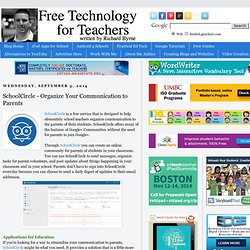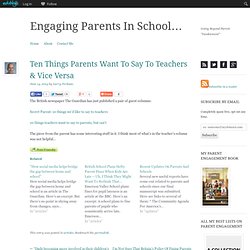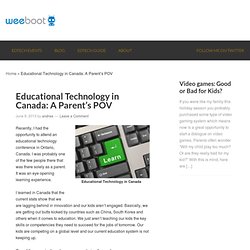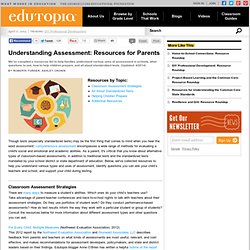

Generation X's Parenting Problem By Anjali Enjeti You remember childhood, don't you?

We wore our house keys around our necks like dog tags, walked home from school alone and let ourselves inside while our parents were still at work. We crossed busy intersections during rush hour to purchase bubble gum cigarettes with change from empty soda cans. Our playgrounds were construction sites, heaps of dirt, creeks filled with snakes and turtles we collected as pets. We climbed trees, muddied our Garanimals, scaled fences between neighbors' backyards. We were told to come in at dark, not a second earlier. We had our kids late. We cart our children to chess, robotics, baseball practice, ballet, cello, swimming lessons and birthday parties. They are rarely out of our sights. They sleep in our beds until middle school. We got picked last in dodgeball and weren't allowed to cry about it. Our meals came from cans, boxes, and freezers. In our youths, we did chores. Our own children receive allowances for merely existing.
Close. Three Efficient Ways to Keep Parents Informed About Your Class and Their Children. The first assistant principal that I worked for gave me a great piece of advice on my first day.

He said, "communicate with parents often and they won't be surprised when you communicate with them. " It was great advice and I put it into action by sending home a weekly newsletter. Today, there are more efficient ways to keep parents informed about what is happening in your classroom. Here are three good methods to keep parents informed about your classroom in general and their children in particular.
ClassDojo is a popular tool for creating records of students' behaviors like staying on task, being prepared for class, and general attendance in class. Remind (formerly known as Remind 101) is one of the original text messaging services for teachers. Email is still a good way to communicate with parents. Connecting with Parents: Erin Klein. SchoolCircle - Organize Your Communication to Parents. SchoolCircle is a free service that is designed to help elementary school teachers organize communication to the parents of their students.

SchoolCircle offers many of the features of Google+ Communities without the need for parents to join Google+. Through SchoolCircle you can create an online community for parents of students in your classroom. You can use SchoolCircle to send messages, organize tasks for parent-volunteers, and post updates about things happening in your classroom and in your school. Parents don't have to sign into SchoolCircle everyday because you can choose to send a daily digest of updates to their email addresses. Ten Things Parents Want To Say To Teachers & Vice Versa. The British newspaper The Guardian has just published a pair of guest columns: Secret Parent: 10 things we’d like to say to teachers 10 things teachers want to say to parents, but can’t The piece from the parent has some interesting stuff in it.

I think most of what’s in the teacher’s column was not helpful… Related. Educational Technology in Canada: A Parent's POV. Educational Technology in Canada Recently, I had the opportunity to attend an educational technology conference in Ontario, Canada.

I was probably one of the few people there that was there solely as a parent. It was an eye opening learning experience. I learned in Canada that the current stats show that we are lagging behind in innovation and our kids aren’t engaged. Basically, we are getting out butts kicked by countries such as China, South Korea and others when it comes to education. One of the organizations I came across during the conference was a non-profit group called C21 Canada. I hunkered down and read their document. 1.
Each of these competencies is a requirement for our kids to compete in the global economy. 2. 3. So what can you do as a parent? Now tweet me with your thoughts @weebootMom or weeboot@gmail.com. Understanding Assessment: Resources for Parents. We've compiled a resources list to help families understand various uses of assessment in schools, what questions to ask, how to help children prepare, and all about standardized tests.

(Updated: 4/2014) Though tests (especially standardized tests) may be the first thing that comes to mind when you hear the word assessment, comprehensive assessment encompasses a wide range of methods for evaluating a child's social and emotional and academic abilities. As a parent, it's critical that you know about alternative types of classroom-based assessments, in addition to traditional tests and the standardized tests mandated by your school district or state department of education.
Below, we've collected resources to help you understand various types and uses of assessment, identify questions you can ask your child’s teachers and school, and support your child during testing. There are many ways to measure a student’s abilities.